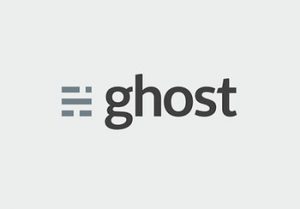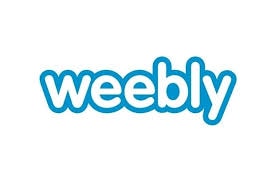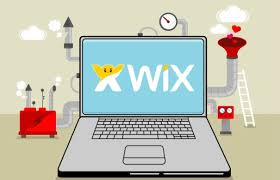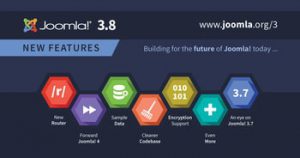Whether you’re interested in developing an eCommerce business, publishing your writing work for marketing and traffic purposes, or are simply interested in expressing your creativity for fun, determining the most effective blogging platform to meet your need is a good place to start.
Continue reading the article below to discover more about the best online blogging sites available today and what to look for on your search.
What to Look for in a Quality Blogging Site
With so many platforms available in today’s tech-based world, it’s important to take the time to research and compare the available options.
- First, it’s important to determine what your goals are for the blog. Are you looking to drive traffic to your site, sell a product, or simply write for fun? Are social networking features important to you? Different sites are best known for different features.
- It’s also important to determine your skill level. Several sites available today require at least some coding and computer knowledge while other sites are extremely basic and easy to navigate.
- One last thing to consider is cost. If you’re on a tight budget, it may be best to consider one of the free sites. On the other hand, if the features you need are on a site that does, in fact, require money, it may be worth it in the long run.
Below are reviewed for 9 of the best sites available today. There you will find information to help you begin your blogging journey.
The 9 Best Blogging Platforms Reviewed
1# WordPress.org
You’ll likely see WordPress at the top of many comparison lists like this one because it’s one of the most popular sites available.
It’s an open source platform which, in turn, means it’s free for you and the rest of the world to use!

Pros:
• It’s extremely easy to use
• Entirely cost-effective because it’s free
• Assorted theme options and plug-ins for customization
• Compatible with SEO when the correct plug-ins are used
Cons:
• WordPress sites all have a similar look about them which may make it difficult to distinguish your site.
• The open source structure equates to a higher risk for security problems
2# Blogger
Blogger is a blogging tool created by Google and considered to be one of the most basic blogging tools available today.
If you’re looking for something that’s easy to use and set up, this may be just the ticket.

Pros:
• 100% free
• It’s as simple as signing in with an existing Google account or creating a new one
• Very easy to use; It doesn’t require extensive tech-knowledge that other sites and tools might require.
Cons:
• Lacks the plug-ins and design features that more complex sites might offer
• Google may decide to cancel your account at any time.
• Not designed for marketing or driving online traffic
3# Ghost
Ghost is a more recently developed platform designed for both online publications and individual blogger folk.
It is free to use unless you wish to specifically host with their specific platform.

Pros:
• Open source software
• Features JavaScript which means faster speeds and loading times
• A variety of publishing and design options
• SEO features
Cons:
• Monthly fees to host your blog on their platform
• Lacks plug-ins that sites like WordPress might offer
4# Tumblr
The focus of Tumblr is on microblogging and social networking at the same time.
Much like social media sites such as Facebook and Twitter, it features sharing, posting, multimedia, news feeds, and mobile options.
Pros:
• Free to sign up for and use; More complex versions are available for a monthly fee
• Community and social networking features
• Mobile availability
• Easy to navigate
Cons:
• Limited customization options
• Requires the specific use of the Tumblr platform
5# Weebly
Weebly is a bit different than just a blogging tool or platform: it’s a website builder with drag and drop features.
It allows for you to utilize general text and images, Google AdWords, surveys, slideshows, templates, search boxes, etc. to customize your site to your need.
Pros:
• A wide variety of customizable themes
• Free trial period
• Affordable pricing (the basic package is free)
• Easy to set up and use
• SEO and eCommerce capabilities
• Customer support
Cons:
• Lack of updates and upgrades
• Blog design options are limited
6# Medium
Medium is a blogging and publishing site with the focus mainly on writers and readers.
It is quick and easy to sign up, set up, and publish to. Your content will be categorized by topic/theme. Social media features are limited.
Pros:
• Easy to set up and navigate
• Affordable monthly rate of $5
• Writing focus
• Community of like-minded people
Cons:
• Medium has control over your blog
• Advertisement features aren’t a possibility
• Limited social media features
7# Wix
Wix is another platform that focuses on website building rather than just blogging. However, blogging features are available.
Like Weebly, Wix features drag and drop features to help you customize your website.
Pros:
• Customizable with apps and design templates
• Easy-to-use drag and drop tools
• Optimized for mobile use
• The basic plan is free and more advanced plans are affordable
Cons:
• Limited apps and extensions
• Premium plans are costly
• Templates aren’t easily customizable
8# Squarespace
Squarespace is designed with small business owners in mind who are seeking to easily create a website.
Depending upon the membership plan you choose, it offers a free domain name and features such as blogs, pages, galleries, customer support, and mobile optimization.
Pros:
• Straightforward and easy to use
• A wide variety of templates
• Unlimited use of galleries, pages, and blogs
• Designed with small eCommerce business in mind
Cons:
• There is no free membership plan; Plans start at $12 per month
• Lacks an abundance of marketing features
9# Joomla
Though slightly more complex than WordPress, Joomla is similar to it in the sense that it is an open-source platform.
A few of its features include content management, contact management, template design, and search features.

Pros:
• eCommerce features
• Numerous extensions are available to customize your site
• Used for websites and blogs alike
Cons:
• Requires some knowledge of computers and web development
• Limited community support
In Conclusion
Now that you’ve read through this article, I hope you have some understanding of what your needs are and which sites you’d like to investigate further. To gather more information, feel free to browse around the specific company sites and utilize the “contact” features with any questions.
Once you sign up and establish your blog or website, you’ll be well on your way to your business and writing success. It’s only a matter of time!
What blog site do you use for your business? Feel free to share your experience in the comments below.

Hi Daniella,
You’ve opened my eyes a little here.
I never realised there was so much choice when it came to blogging site platforms.
When I first started with web building I was schooled in html, and WordPress was this really dull CMS platform with a couple of boring themes.
These days though I balance WordPress with a bit of back end html and I find it works really well.
However, for others who don’t have coding knowledge you’ve given people some great options.
Good work.
Paul @ OneNetBiz
Hi Paul,
Yes, effectively, there are many website platforms online, and I didn’t mention all of them:)
That’s true; there is no need for HTML code for most website platforms and neither for WP. I don’t have any skill in HTML, and I manage wonderfully with WP. Joomla is a bit more complicated and it requires HTML knowledge.
Thank you for the comment and wish you a wonderful day!
Thanks for the review of the top website platforms that you wrote, Daniella. Looks to me like you put a lot of time and effort into your research. I’m currently using WordPress, but a few years ago I used a platform called 1 and 1. I notice it’s not on your list. Are they still around or did they just not make the cut? I wasn’t very happy with them at the time, but it was partly my fault because I was clueless about websites at the time and didn’t understand the platform.
Hi Grant,
You are very welcome!
I’ve never used 1&1 platform, so I can not tell you if it’s a good website builder. I know it is still online, but it doesn’t seem as popular as the other platforms.
If you are happy with WP, then why try other platforms 🙂
Thank you for the comment and wish you a great day!